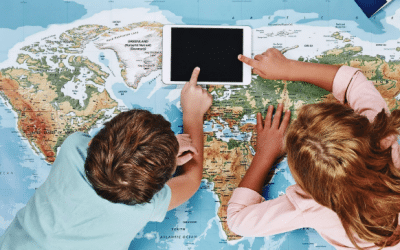Digital Transformation in the tourism industry is gaining relevance. With the ubiquity of Smartphones in the consumer’s life it is no surprise that gradually more tourists are booking through this device. Specifically, Smartphones are responsible for 24% of online bookings already and in the travel industry, many companies are aware that more than 90% of its traffic comes from Smartphone.
In fact, it is known that nowadays the user continually switches from one device to another, they often start searching on a mobile device, compare on a tablet and finish the booking on a laptop.
Digital Transformation in the Tourism industry: Major changes
User reviews
Users are increasingly using mobile applications to plan their trips to share opinions about destinations and to talk about their experience during the stay at the destination. The information generated by customers has become one of the key elements for other customers to decide to which destination to travel and in which hotel to stay. The feedback generated by customers may not reach through the usual channels, it is therefore essential to make active listening in social media, websites and tourism applications.
Big Data
Consumers also like to connect with brands and they do it through social media platforms, the cornerstone of any solution based on interacting with the DB strategy. Thanks to the combination of big data and social media, now it is possible to obtain information about the interests and tastes of tourists. This allows for a customer segmentation with a high level of detail and therefore a more personalized communication with each of them, based on their concerns and behaviors.
Sharing Economy
Sharing economy is another trend favored by the digital transformation in the tourism industry and has clearly come to revolutionize the industry. New businesses like Airbnb encourage tourism from a different approach and are becoming increasingly accepted in our country. Due to its diversity, price range and location, they are gradually becoming an alternative solution for accommodations.
Robotized jobs
The development of technology is allowing companies to take the first steps in replacing employees by robots, or at least assisting them to some degree to perform tasks that were traditionally performed by human employees. Some of the best known examples are the cleaning and receptionist robots.
Keeping an updated agenda of a single relevant destination requires full-time work of at least 2 people. In this sense, Smartvel, is also an example of big data and “robotization”. Now, with the aid of the latest advances in natural language and cognitive systems (self-learning), one person can monitor dozens of destinations and know all that is possible to do in all these destinations at certain dates
In general…
Analyzing data, trends, consumer behavior and competitor actions independently can draw interesting results, but it is only when analyzing the industry as a whole when the profound change that the tourism industry is experiencing can be appreciated.
Many companies are unprepared or are unwilling to make the investment needed to adapt to the new digital model. On the other hand, new technologies and communication channels also provide business opportunities, regeneration and freshness to the industry as well as new ways to communicate with the customer. Companies should mainly promote the implementation of customer-centric practices as the new business model. They face a natural selection process where only those who are able to adapt will remain competitive and able to offer their customers an optimal experience.
The tourism companies that do not undergo a digital transformation process will lose competitiveness in the long-run, as customers are familiar with the advantages offered by the new digital environment. The tourism industry is therefore becoming updated, being it one of the main industries of the Spanish economy and generating more than 11% of the Spanish GDP.




